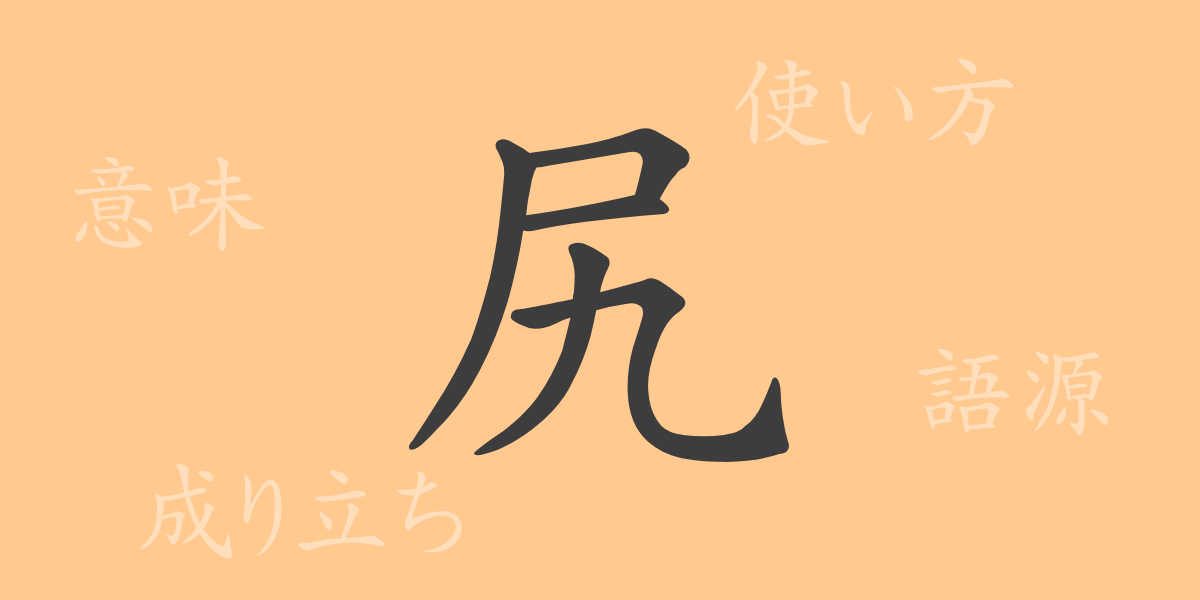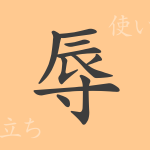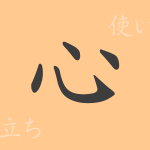The Japanese language is rich in meaning and history, extending beyond mere characters. Even a common Kanji such as ‘尻’ (しり) encapsulates a deep etymology, diverse usages, and cultural significance. This article will delve into ‘尻’, exploring its origins and how it is used today, shedding light on its frequent application in everyday life.
Origins of 尻 (しり)
The Kanji ‘尻’ traces its roots back to ancient Chinese oracle bone script. Initially depicted as a pictograph representing the lower half of the human body, it has evolved over time into a more abstract symbol. In Japan, this character has been used since ancient times and adapted into various expressions.
Meaning and Usage of 尻
Directly, ‘尻’ refers to the buttocks of humans or animals, but it is also used metaphorically. For instance, it describes the end or bottom of something, as in ‘尻を引く’ (to drag the end). It is also used to point out failures or problems in phrases like ‘尻をまくる’ (to reveal the bottom).
Readings, Stroke Count, and Radical of 尻
The Kanji ‘尻’ is essential to know, not only for its form but also for its function:
- Readings: On’yomi (オンよみ) ‘コウ’, Kun’yomi (クンよみ) ‘しり’
- Stroke Count: A total of 8 strokes.
- Radical: The radical is 尸 (しかばね), related to characters depicting the body.
Phrases, Idioms, and Proverbs Involving 尻
‘尻’ appears in many idiomatic expressions and proverbs, enriching the Japanese language:
- 尻を叩く (しりをたたく ‐ to smack the bottom): To encourage or motivate someone who is slacking.
- 尻を掻く (しりをかく ‐ to scratch the bottom): To describe restlessness or fidgeting.
- 尻に火がつく (しりにひがつく ‐ fire on one’s bottom): To be in a situation requiring urgent action.
Conclusion on 尻
The single character ‘尻’ conveys much more than just a part of the body; it embodies the depth and versatility of the Japanese language. From everyday conversation to literary works and proverbs, ‘尻’ continues to be used in various contexts, exemplifying the profound and dynamic nature of Japanese.

























